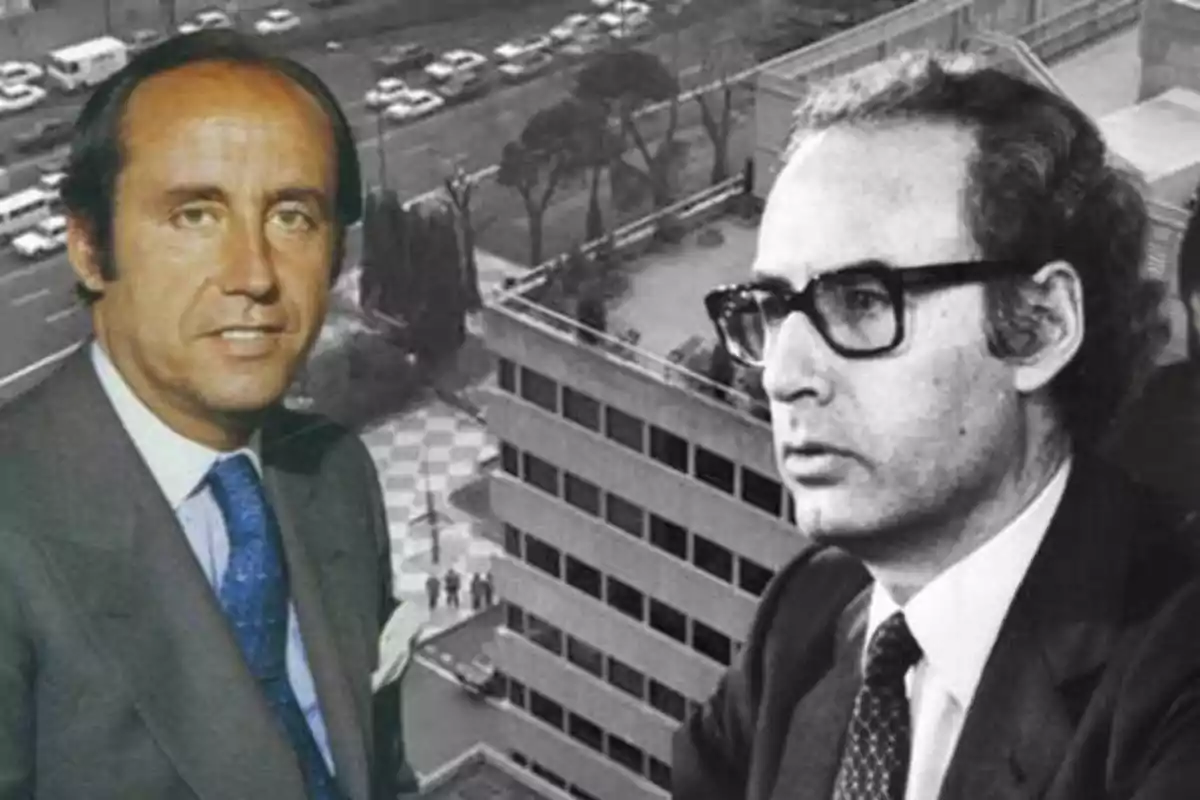
Scandals involving finance ministers: Boyer handed over Rumasa's reprivatization
In 1983, the Rumasa holding was expropriated by Felipe González, and that same year, some of its companies were reprivatized
This is the true story of the expropriation and reprivatization of Rumasa. The urgency of Felipe González's government to strip the well-known bee holding from José María Ruiz-Mateos led to errors and omissions in the drafting of the Expropriation Decree Law, as the text published in the BOE included companies that did not belong to the holding and omitted others that were part of the hidden or underground Rumasa. It was José Luis Llorente Bragulat, as deputy director general of the advisory services of the Ministry of Justice, who, as State Attorney, drafted the draft of the Rumasa Expropriation Decree Law.
The men of Miguel Boyer expropriated companies that had already belonged to the public sector since 1969, such as Túneles del Tibidabo, owned by the City Council and the Barcelona Provincial Council. The same happened with Roca Radiadores, with no connection to Rumasa or to Atlántico de Comercio, a non-existent bank that was also included in the decree. Meanwhile, companies that were not listed in the legal regulation were expropriated, such as the Valencian company Marcol, which at one time became the largest wholesale company in Spain, with an important handball team that won the Copa del Generalísimo four times, and which had just been purchased by Ruiz Mateos, so it did not appear in the Group's records.
Everything was carried out according to a pact sealed by the socialists with the economic powers. So much so that "old Botin", Emilio Botín-Sanz de Sautuola López, father of the later all-powerful president of the Santander holding, sent a congratulatory telegram to Felipe González for the expropriation. No one in the sector understood how a banker congratulated a government for the expropriation of other banks, among them, Atlántico or Condal, which at that time were similar to his own. The initial cost of the expropriation and reprivatization of Rumasa was financed with a public debt issue of 400 billion pesetas, at eight percent for twelve years, which was subscribed by a consortium of banks and delivered to the public Rumasa without any interest. In addition, another series of 40 billion was issued at an interest rate of 9.5 percent.
Ruiz-Mateos's companies outside Spain
Despite Ruiz-Mateos's lament, the businessman from Cádiz managed to take a huge amount of money out of Spain and keep safe at least seven large companies not controlled by Miguel Boyer and the socialist government, which were later sold in the following five years with significant capital gains. These were companies located outside Spain.
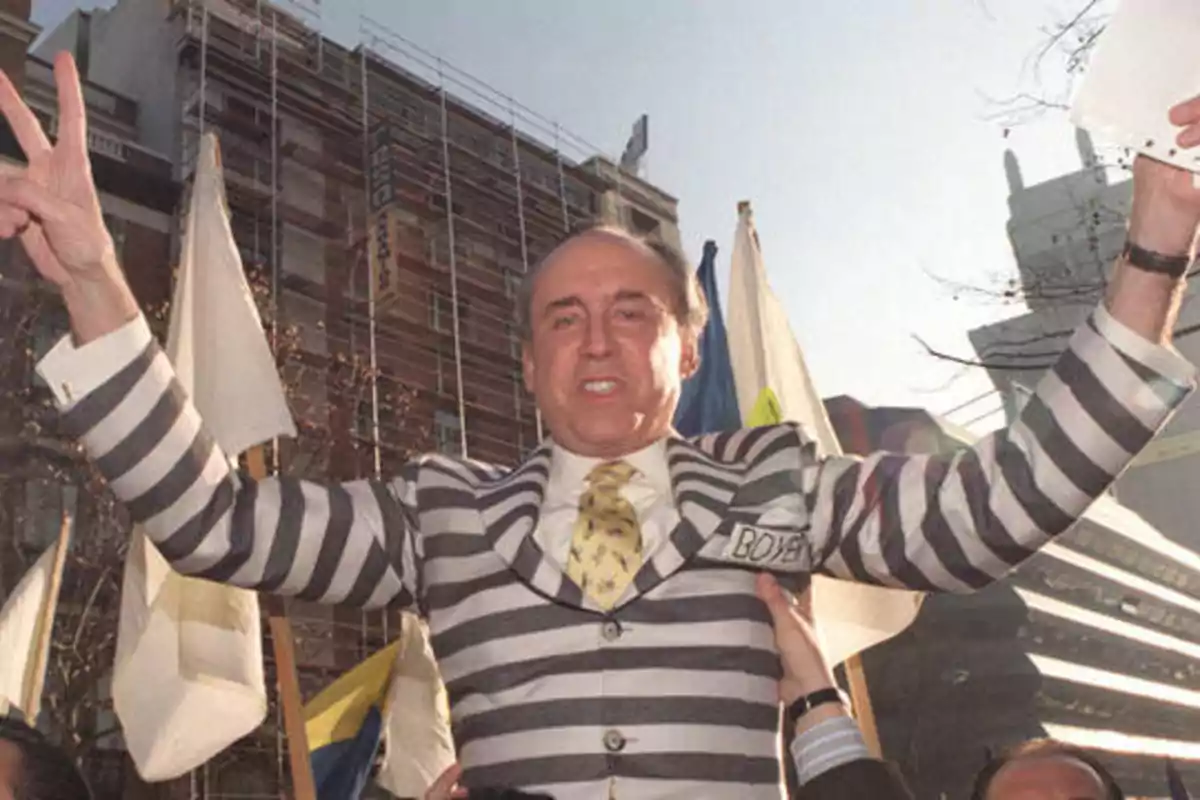
Ruiz Mateos had a dense business network in Europe and America of which Boyer had no official knowledge. A tangle of underground or essential companies that the man from Cádiz created to shape his business empire outside any established monetary rules and the current economic legislation.
For example, he acquired the second most important wine cellar in Argentina, named Graffigna, located in the province of San Juan, La Rioja, Argentina, which was sold a week before the famous "corralito" to Freixenet for more than 30 million euros; the Hotel Everglades, in Miami (USA), sold for 40 million dollars to a Jewish lobby; the Union Bank, in Frankfurt (Germany), 50 percent owned with BBV, which was the first to be sold in 1983 after the expropriation for 900 million pesetas and whose president was Ruiz Mateos's maternal nephew, Alfonso Barón Rivero, the person who managed the family's accounts abroad and who had an electronic key that allowed access to money accounts in Switzerland; the company Rodes, the largest bulk wine cellar in all of Europe located in Amsterdam (Netherlands), transferred for several million euros; also a beverage chain in the Netherlands, with more than 150 brands, which was sold for 50 million euros; the Da Silva wine cellar, located in Oporto and later bought by Pernod Ricard for 30 million euros; and a large wine cellar in Chile, including vineyards.
In total, it is estimated that the Ruiz Mateos family obtained from these B sales, without Boyer knowing, about 220 million euros, money that was never deposited in Spain and of which neither the socialist government nor its all-powerful Minister of Economy had any knowledge, unaware of the many actions in the rear carried out by the businessman from Cádiz, who easily evaded the disastrous government controls.
It should not be forgotten that Boyer had not even been in charge of the Ministry of Economy for three months and his people had not yet taken possession of their offices, nor did they know exactly what was happening in the Spanish financial-business sector when he launched the challenge of the expropriation of Rumasa following the orders dictated by his friend Felipe González, who wanted to set a precise example to the economic power. "Find the reasons to expropriate," he told him. Experts say that the entire expropriation of the bee holding was based on a commemorative report that Rumasa itself had prepared and published on the occasion of its twentieth anniversary (1961-1981).
For Boyer, the expropriation of Rumasa was necessary. At that time, the bee holding practically had a monopoly on opaque money, since it paid its holders interest several points above what other banks offered, reaching 18 percent net in apparently deferred operations that, in reality, were at sight and of immediate availability.
The business was simple and profitable, but at the same time risky and adventurous, as was later also shown with the promissory notes of Nueva Rumasa. The Sofico and Matesa scandals, financial companies that collapsed spectacularly, still lingered in the official circles of power, where they continued to view with fear the irregular way of proceeding of some prominent numerary members of Opus Dei, with interests in the business world and, specifically, in the banking sector.
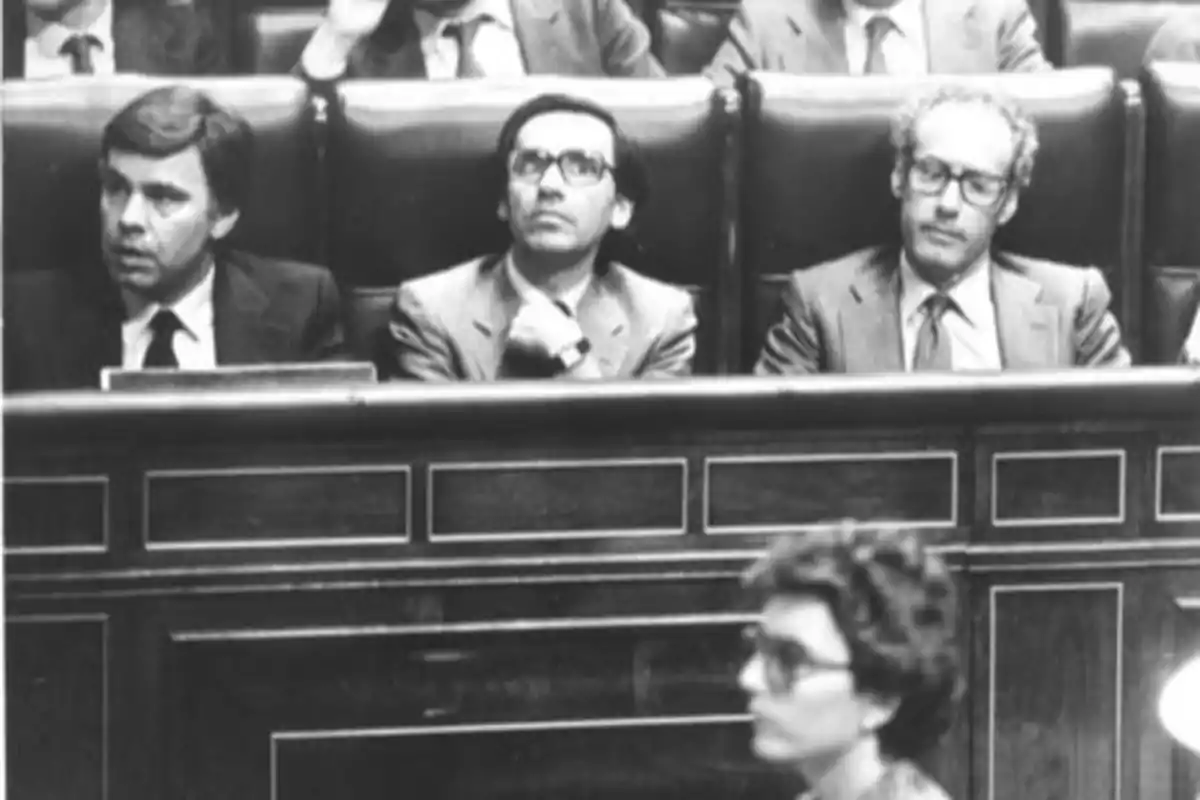
Boyer considered that if the banking business was characterized by owning companies in which outside resources and deposits were invested, the bee holding was quite the opposite, a business empire that owned banks mainly for its sole financing and development. The constant and unbridled growth of Ruiz Mateos's holding, as later also happened with Nueva Rumasa, driven by a frenzied buying spree, required strong financing, and hence the systematic pressure that the Group exerted on its banking division in order to continuously attract liabilities.
Precisely, Rumasa's debts amounted to 228.322 billion pesetas, most of it provided by the banking division of the holding. Years later, Rumasa's assets were valued at around two trillion pesetas, the amount that Ruiz Mateos claimed from the socialist government as compensation for damages.
Over time, there have been many critical voices against this expropriation, perhaps caused by the historical circumstances that surrounded that decision in the climate of arrogance that prevailed at the time within the PSOE, as a consequence of the overwhelming victory obtained by Felipe González in the 1982 elections.
Against the expropriation of Rumasa, the Alianza Popular group (later PP) launched a tough battle, mainly through its deputy from Badajoz, Luis Ramallo García, who submitted a large number of parliamentary initiatives. Ramallo even asked González's government about the alleged mediation by Isabel Preysler, already romantically linked to Miguel Boyer, in the controversial sale of three companies of the now public holding: the acquisition of the luxury brand Loewe by the French Urvois-Spínola; the sale of the hotel chain Hotasa to the Mallorcan businessman Gabriel Escarrer Julià; and the purchase by the Cisneros family of the Galerías Preciados department stores.
The beneficiaries of the reprivatization of Rumasa
Precisely, one of the companies that caused the most controversy in the reprivatization of Rumasa was the well-known brand Loewe. This company had obtained, in the last fiscal year before the expropriation, profits worth 118 million pesetas. During the 17 months it remained under the administration of the State, however, it incurred losses of 468 million pesetas. A sale in which, in the pages of the newspapers, the name of Isabel Preysler Arrastia as alleged intermediary appeared, for whose management she apparently received about 50 million pesetas, a suspicion that even had to be clarified by the then Director General of State Assets, Francisco Javier Moral Medina, in a parliamentary appearance.
Loewe was awarded to the French business group Urvois Spínola. The award was made despite an offer from the English group Jaeger Holdings LTD that offered 800 million pesetas, that is, 200 million more than the proposal from Urvois Spínola. Although the Advisory Commission for Reprivatization, the famous CAR, considered the guarantees offered by Urvois Spínola insufficient and was in favor of opting for the English group, González's government ignored this recommendation and chose the French. Precisely, Miguel Boyer abstained in that council of ministers due to the rumors and suspicions that had already arisen in the press regarding the reprivatization of Loewe and the supposed appearance of Isabel Preysler.
As a result of the alleged mediation of Isabel Preysler, the businessman José María Ruiz-Mateos filed with the courts a criminal complaint against Miguel Boyer, Isabel Preysler, Javier del Moral, and five other people, allegedly related to the awarding of the Loewe brand to the Urvois-Spínola group, for alleged crimes of embezzlement of public funds and fraud.
The Second Chamber of the Supreme Court dismissed and filed, in October 1987, the aforementioned complaint. Ruiz-Mateos recalled in his complaint that "on July 11, 1983, the government's advisory commission for the disposal of Rumasa group companies considered the offer from Jaeger Holding Ltd to be better, despite which, on the 31st of the same month and year, the Council of Ministers awarded Loewe to the Urvois-Spínola group." He described this agreement as "absolutely surprising" and explained it as follows: "the accused Isabel Preysler, Marchioness of Griñón, taking advantage of the close relationship she has with the also accused Miguel Boyer Salvador, then Minister of Finance, and relying on his decisive influence, made the proposal to Jaeger that if they wanted to be awarded, they would have to pay 50 million pesetas and, since the applicant did not submit to her demand, she reversed her offer, directing it to those who would later be awarded." With evidence based on newspaper articles, he also claimed that "the accused obtained illicit profit and a corresponding loss for the National Heritage."
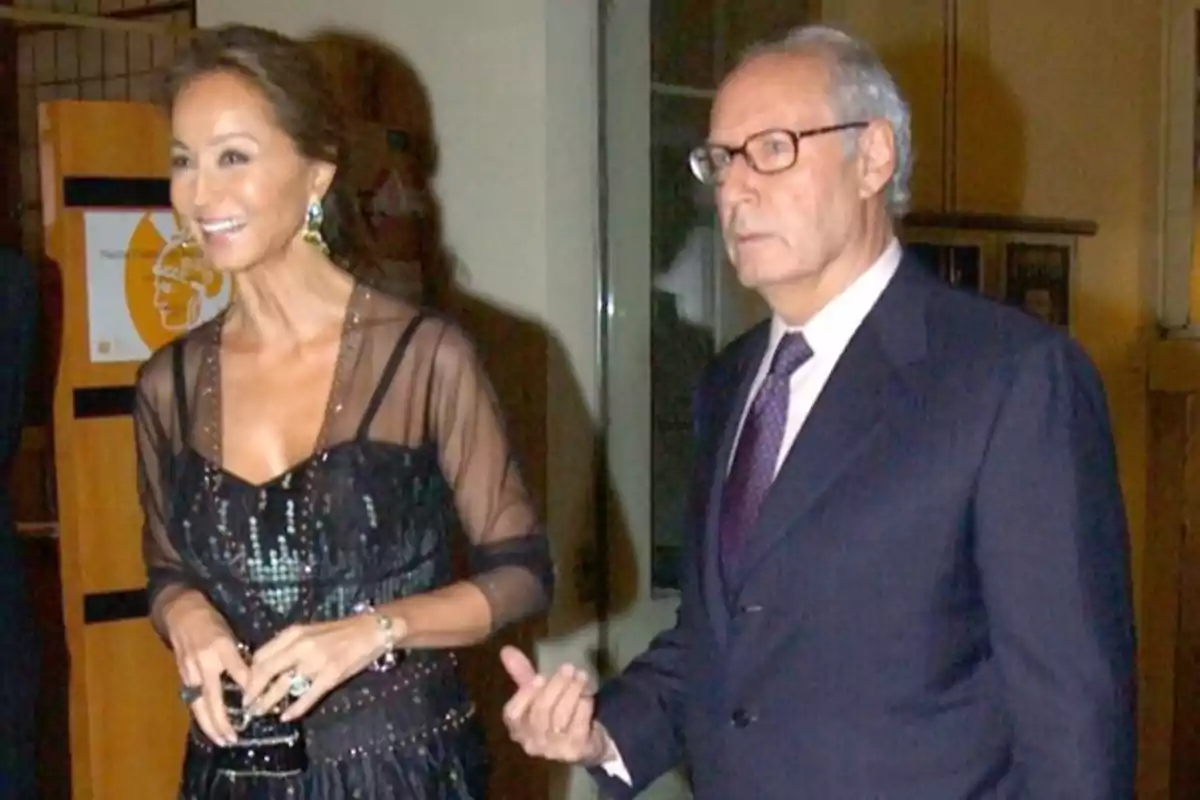
However, it would be the sale of Galerías Preciados that would have the greatest negative impact on public opinion due to its sale. This distribution giant was then the second largest department store chain in Spain, behind El Corte Inglés, with nearly one million square meters (10,763,910 sq. ft.) built in buildings, a workforce of nearly twelve thousand people, thirty retail stores spread across twenty-one Spanish cities, and seventeen small stores, as well as the Mantequerías Leonesas brand integrated by Ruiz Mateos into the Galerías Preciados chain.
The company was sold in December 1984, with Boyer as Minister of Economy and Finance, to the Venezuelan magnate Gustavo Cisneros Rendiles, a personal friend of the then socialist president of Venezuela, Carlos Andrés Pérez, and also former president Rómulo Betancourt, both great companions of Felipe González in the Socialist International. They say that, however, Boyer barely knew Cisneros, who bought Galerías Preciados for 750 million pesetas.
The acquisition was made through a company of the organization called Elingra Beeleingge Nematschaping B.V., which had a tiny capital and was registered in the city of The Hague, then under an opaque tax regime. Quite a bargain. Cisneros knew how to take full advantage of the purchase of Galerías Preciados since, three years later, in 1987, he sold it to the English real estate consortium Mountleigh Group PLC, chaired by Ronald Anthony Clegg, for 30 billion pesetas. In addition, it so happened that Cisneros received Galerías free of encumbrances, fully cleaned up by the State, and transferred it to the English buyers with hefty liabilities, close to 35 billion pesetas.
Doubts about the impartiality of Rumasa's privatization
Spanish public opinion reacted critically when the details of the operation became known. The Cisneros family, friends of Felipe González, had made a quick and prosperous business in Spain with the reprivatization of Rumasa, earning many millions with the capital gains from the sale of Galerías.
What overflowed all criticism was that the same year of the fruitful sale to the English, Miguel Boyer and his then partner Isabel Preysler accepted an invitation to spend a few days in August aboard the Cisneros family's yacht to sail the Mediterranean waters of the Balearic Islands. The photos were distributed in all the magazines and showed the Boyers in great harmony with the Cisneros couple. Days later, rumors about the alleged role of Isabel Preysler as intermediary in the privatization of Galerías Preciados, thanks to her friendship with the Venezuelan businessman Gustavo Cisneros, were vox populi in all Madrid circles.
This has always been denied by Preysler. The Investigative Court No. 32 of Madrid dismissed another complaint filed by the businessman Ruiz Mateos regarding the alleged commissions received by Isabel Preysler in the reprivatization of Galerías Preciados. However, despite the dismissal of all complaints, the credibility and independence of Miguel Boyer was called into question.
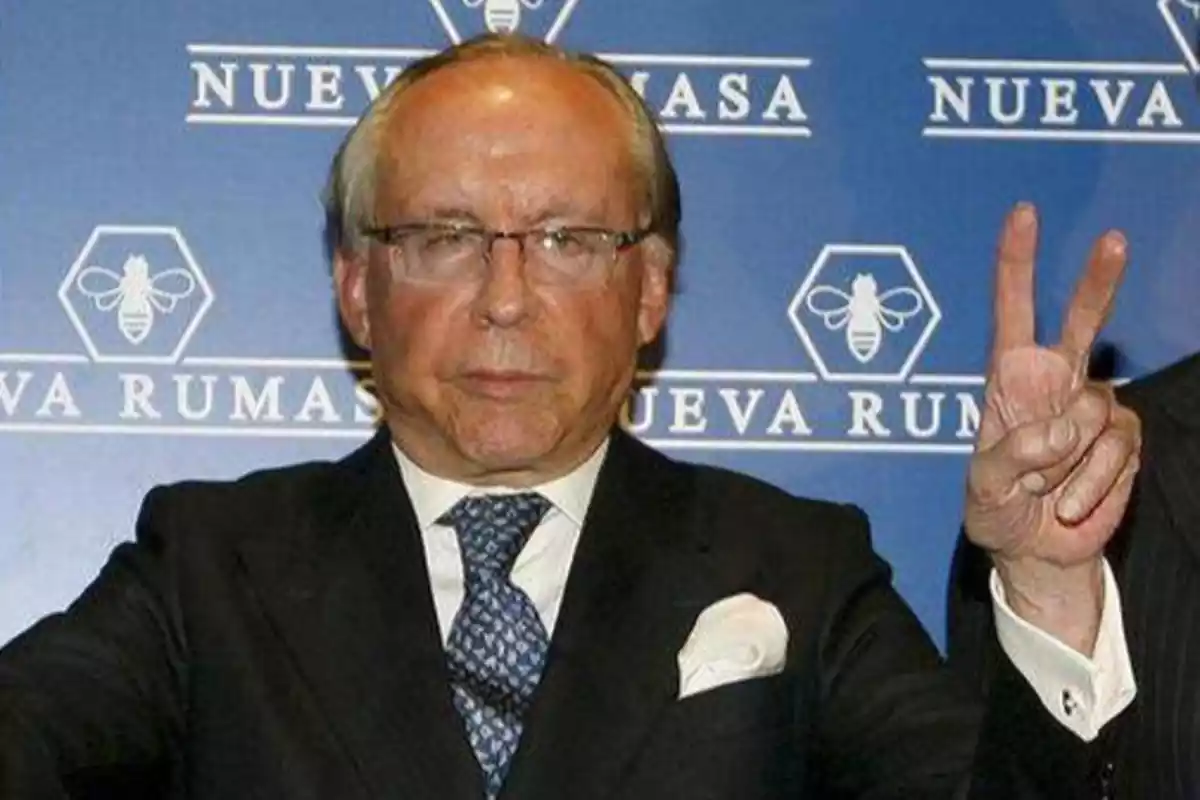
The CAR, with fourteen members, was chaired from its foundation by Francisco Javier Moral Medina, due to his position as Director General of State Assets, until October 1985, when he was replaced by Prudencio García, a childhood friend and classmate of Miguel Boyer at the French Lyceum. As members were some of Boyer's main companions in the beautiful people, active members, such as Manuel de la Concha e Isla, then president syndic of the Official Stock Exchange of Madrid; Juan Antonio Ruiz de Alda, deputy governor of the Bank of Spain who later died in a car accident; or Adrián Piera Jiménez, president of the Madrid Chamber of Commerce and Industry; as well as politicians such as Ignacio Fuejo Lago, Secretary General of Tourism; or José María Martín Oviedo, Director General of the Deposit Guarantee Fund and former leader of the now-defunct UCD. Thus, two groups were formed: the official one and the independents, the latter appointed by Boyer personally due to their position or political and business significance.
Despite Boyer's determined efforts to keep the CAR free from all kinds of government influence, it was not achieved. Legitimacy, impartiality, and independence were conspicuously absent. Today, great suspicions and controversies remain in the balance of the dark concessions, which allowed many businessmen to obtain substantial and million-dollar profits thanks to widespread direct awarding.
The popular opposition considered that of the fourteen members of this commission, ten were linked to the socialist administration and that, moreover, some were distinguished members of the PSOE. Public opinion missed the fact that the major unions UGT or CC.OO. were not represented, who would have been witnesses to the entire reprivatization process. The struggle between Boyer and the unions, later taken to González's government, caused the gap to widen and none of them were included, supporters of having the Rumasa holding further increase the public sector, something Boyer did not want at any cost. That's why he reprivatized the bee holding in a hurry, creating major gaps and controversies in its reprivatization and severely damaging the credibility of González's government.
In this unusual race, intermediary companies were even hired, such as Fisrt Boston Corporation, which for its work as a broker in the sale of state-owned Rumasa companies earned the not inconsiderable sum of 1.416 billion pesetas, twenty percent of the 7.985 billion received by the public treasury up to September 1986.
Although Boyer and González wanted most of the Rumasa holding companies to end up in the hands of Spanish businessmen, many of them were acquired by foreign groups. For example, Rumasa's real estate division was awarded to the British businessman Gerald Maurice Ronson, a person prosecuted and imprisoned for six months for his active participation in the Guinness brewery group scandal. This did not prevent the president of the British real estate group Heron International LTD from acquiring the Rumasa division by paying 10.536 billion pesetas in cash, two billion more than the offer made months earlier by the Spanish businessman Emiliano Revilla, who was later kidnapped by ETA.
Rumasa's banking division also caused serious controversy due to its acquisitions. Of the twenty banks that made up Rumasa's financial division, seventeen of them—Albacete, Alicantino de Comercio, Condal, Comercial de Catalonia, Extremadura, General, Huelva, Industrial del Sur, Jerez, Latino, Murcia, Noroeste, del Norte, Oeste, Peninsular, Sevilla, and Banco de Toledo—were acquired by a consortium of banks that included all the major Spanish private banks. Only Banco Atlántico, of which Ruiz Mateos owned 69.15 percent of the shares and which was not part of the holding, was sold for the ridiculous sum of 5.115 billion pesetas to the Arab Banking Corporation, a Libyan public capital credit institution that subscribed to 70 percent of the shares, while the rest of the shares went to Exterior de España and Banco Árabe Español.
Other companies were sold at even more ridiculous prices, such as Viajes Cristal (10,000 pesetas), Alcoholes y Vinos (9,000 pesetas), and the wine company Sur-Pérez Barquero (2,700 pesetas). Or the Museo de Bebidas de Perico Chicote, a historic artistic heritage, which was handed over for 40 million to the shipping businessman José Manuel Triana Souto, who later sold some of the prized bottles to foreign collectors at a much higher price. Another major suspicion in the awards was that of Bodegas Franco-Españolas to the businessman from La Rioja Marcos Eguizábal Ramírez, a man close to the PSOE who was president of the soccer team Club Deportivo Logroñés, who made an offer for less than 400 million pesetas. Another bargain.
Today, with the passage of years, no one doubts that the reprivatization of Rumasa facilitated the speculations and big windfalls of socialism at that time. With Miguel Boyer at the helm, who did not want to take responsibility, perhaps more concerned with his love affairs with Isabel Preysler. We will talk about that hidden and clandestine love story another day.
More posts: